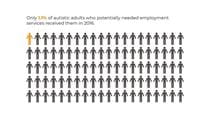Lindsay Shea, DrPH

Shea leads autism-focused projects at the local, state, federal and international levels using innovative analytic strategies developed in the Policy and Analytics Center to support the development of effective social and health policy across the United States. Shea was the first to author the Pennsylvania Autism Census Report and her research interests include creating and using an evidence base in forming, evaluating and implementing social and health policies.
Shea is the interim leader of the Life Course Outcomes Research Program, in the A.J. Drexel Autism Institute. Her work focuses on delivering information that empowers families, communities and organizations to create a world where people on the autism spectrum are valued and supported as contributing members of the community.
Contact
215.571.3440 ljl42@drexel.eduIn The News
Related Articles
Drexel News is produced by
University Marketing and Communications.







